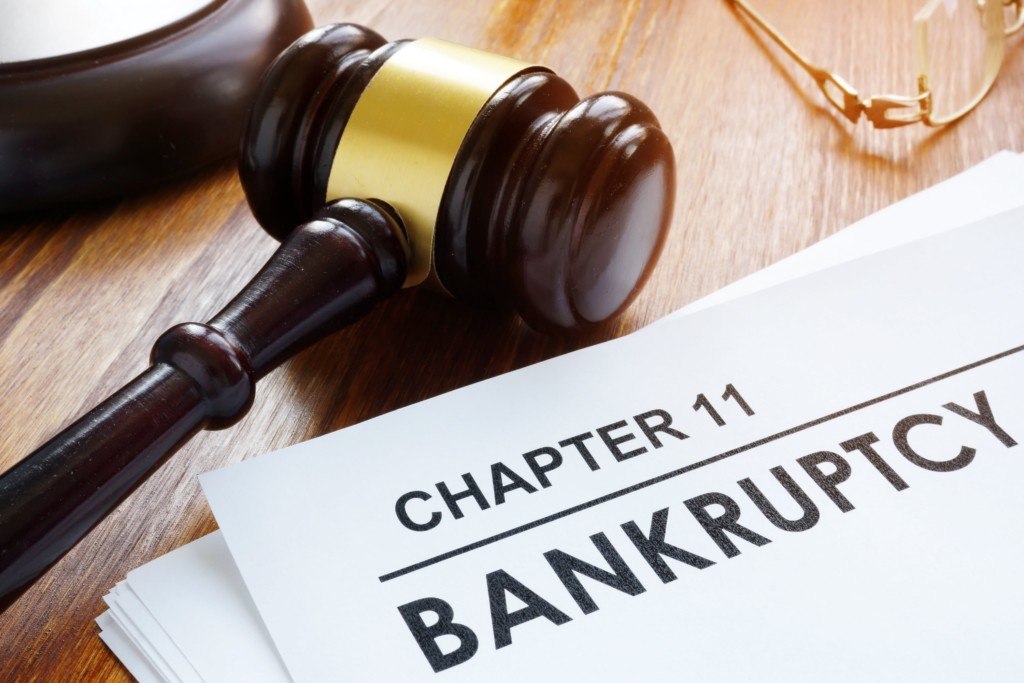Supply Chain Chapter 11 503 B 9 Claims
In managing credit risk with an insolvent customer, the seasoned credit team also appreciates not just the A/R risk but the preference risk should the customer file bankruptcy or an out-of-court liquidation such as an Assignment for the Benefit of Creditors. In some settings, suppliers may have larger exposure with preferences than with A/R. Recent retail Chapter 11s (503 b 9 claims) where the supply chain is being sued for preferences include HH Gregg, Toys R Us, and Babies R Us (if the supplier opted out of the settlement agreement).
The welcome news for furniture manufacturer credit teams is that several significant chapter 11 retailers have included supplier preference releases in their negotiated exit from Chapter 11. But the credit team should be mindful of a provision in a Chapter 11 plan that, on the one hand, provides for a preference release. Still, on the other hand, the debtor seeks to offset suppliers holding priority claims through a reserved claim objection based on preference liability.
The Bankruptcy Preference

The Bankruptcy Code vests the trustee with far-reaching powers to avoid payments to suppliers within 90 days before a bankruptcy filing. One of a debtor’s most potent weapons is to discourage a supplier’s collection strategy of racing to the courthouse to seek a judgment against the insolvent customer.
Supply Chain and One-Off Preference Release
Several high-profile companies have exited chapter 11 with a plan of reorganization that provides for the release of preference actions against the supply chain. Recent case examples include Rue 21, Haggens Supermarkets, Gordmans, and Bon-Ton Stores. These cases highlight the chapter 11 exit strategy in two settings: (1) a sale of assets, with an asset purchase agreement negotiated between the debtor, the buyer, and creditors’ committee, that includes a preference release; or (2) an operating plan negotiated by the debtor, secured creditor and creditors’ committee that includes in the Disclosure Statement and Plan, a preference release. In both settings, the supplier qualifies for the preference release by offering credit terms for their product or service to the buyer or reorganized debtor upon exit from chapter 11.
If the debtor does not propose a supply chain preference release, the supplier may seek to negotiate only for its own potential liability. The one-off preference release is commonly through negotiation of supplier trade terms in exchange for early payment of the supplier’s 503 b 9 claims.
A Trust is created to retain the estate’s preference actions and sale proceeds with the sale of asset cases. The party responsible for the Trust’s assets is often referred to as a plan administrator. The responsibilities of the plan administrator are to maximize the Trust’s assets and limit its liabilities. One way to limit liabilities against the Trust is through plan administrator objections to claims submitted by suppliers.
A claim objection can be books and records—the debtor’s reconciliation of the supplier’s claim does not match a late-filed claim. Another strategy for the plan administrator to reduce claims is to object to a supplier’s claim based on the supplier having received a preference. But does such an objection have merit where the Plan provides for a supply chain preference waiver? Is such an objection selective enforcement of the preference powers as these claim offsets are commonly asserted against suppliers asserting 503 b 9 claims?
Claim Objection Based on Preference
A plan administrator may object to a supplier’s claim, most likely 503 b 9 claims, under section 502(d) of the Bankruptcy Code. Section 502(d) provides, in pertinent part, that “the court shall disallow any claim of any entity from which property is recoverable” under the preference statute unless the preference is repaid.
How might a plan administrator support a section 502(d) claim objection where a debtor under a confirmed Plan releases suppliers from preferences?
For example, in In re Gordmans, the confirmed Plan (at Article VII, paragraph F) provides:
Any Claims…recoverable under section…547 of the Bankruptcy Code shall be deemed disallowed under section 502(d) of the Bankruptcy Code…
However, Article VIII, paragraph C of the Plan, provides an unconditional preference release to suppliers from preferences. Thus, the question for a supplier holding a 503b9 claim is whether a plan administrator may disallow the supplier’s claim under section 502(d) on the grounds of an alleged preferential payment, even though a preference action cannot be filed as a result of the preference release.
Does the Legal Authority Support the Supplier Dealing with a 502(d) Claim Objection?
In most chapter 11, suppliers holding non-priority claims generally do not receive a distribution. Instead, only those suppliers having priority claims, generally 503b9 claim holders, receive a distribution. Therefore, in most chapter 11’s, the plan administrator focuses on claims’ objections, including 502(d) objections, against suppliers holding priority claims.
Fortunately, most courts hold that section 502(d) does not apply to 503b9 claims. In re Lids Corp., 260 B.R. 680, 683 (Bankr. D. Del. 2001) (“administrative expense claims are accorded special treatment under the Bankruptcy Code and are not subject to section 502(d)”); In re Durango Georgia Paper Co., 297 B.R. 326, 331 (Bankr. S.D. Ga. 2003) (“Section 502(d) does not apply to administrative expenses that are allowable under § 503.
The minority position is that section 502(d) applies to all claims, including administrative expenses. In re MicroAge, Inc., 291 B.R. 503, 508 (B.A.P. 9th Cir. 2002) (“[W]e believe that the better analysis is that § 502(d) may be raised in response to the allowance of an administrative claim”); In re Circuit City Stores, Inc., 426 B.R. 560, 571 (Bankr. E.D. Va. 2010) (“[T]he Court concludes that § 502(d) may be used to disallow § 503b9 claims temporarily”).
Credit Team Strategy to Ensure Priority Claim is Free from 502(d) Objection
If the supplier has a provision in a confirmed plan that provides a supply chain preference release, the next step is to verify that the plan administrator does not preserve a 502(d) claim objection. If so, consider objecting to that provision of the Plan.
If an objection to the Plan is not lodged, the supplier still has an alternative to preserve the priority claim. The court in In re Energy Conversion ruled that a provision in a confirmed plan does not override Congressional intent. In In re Energy Conversion, the Trustee requested the court delay payment of a supplier’s 503b9 administrative expense until after the preference claim against it had been determined. The Court explained that whatever discretion a court may have to allow a Chapter 11 debtor to defer paying allowed administrative expenses before a plan is confirmed, such discretion no longer exists once a plan has been confirmed; the confirmed plan controls, when allowed administrative expenses, must be paid.
Credit Team Takeaway
As more large Chapter 11 retailers are considering supply chain preference releases, the credit team, especially where holding a 503(b)(9) claim, should be vigilant as to whether the plan administrator seeks to retain 502(d) claim objections. If a supply chain preference release is provided in Chapter 11, but 502(d) claim objections are also retained, consider objecting to that provision in the plan. Otherwise, case authority supports the 502(d) claim objection be overruled.
